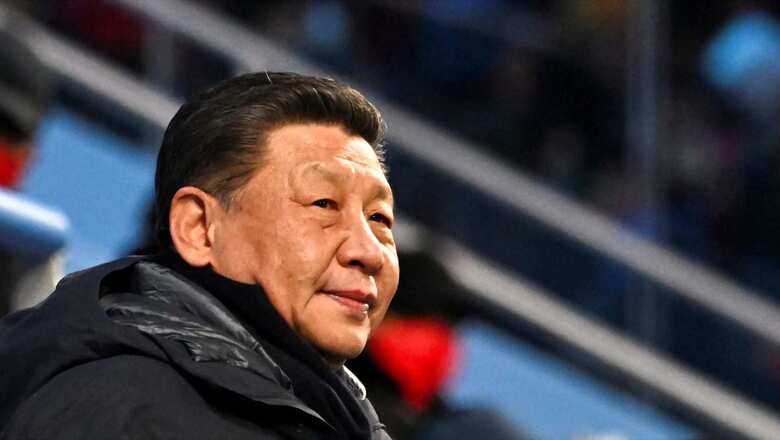
views
India’s ‘deft diplomacy’ humbled China at the International Atomic Energy Agency (IAEA) on Friday as it was forced to withdraw an anti-AUKUS resolution at the nuclear watchdog’s 66th regular session of the General Conference.
The Indian mission in Vienna worked with smaller member states of the IAEA against China’s attempt to pass a resolution against AUKUS for seeking to provide Australia with nuclear-powered submarines.
China argued this initiative was in violation of their responsibilities under the Nuclear Non-Proliferation Treaty (NPT) while criticizing the role of the UN nuclear watchdog.
However, fearing an imminent fall, the Chinese side withdrew its draft resolution on September 30, on the final day of the general conference.
“India’s considered role helped many smaller countries take a clear stand on the Chinese proposal. Realizing that its resolution would not get majority support, China withdrew its draft resolution on September 30,” a senior diplomat privy to the developments said.
They further added that India took an objective view of the AUKUS initiative based on the soundness of the technical evaluation by IAEA. The Indian mission to the IAEA in Vienna worked closely with many IAEA member states in this regard.
AUKUS and Strategic Challenge to China
The nuclear-powered submarines pose a strategic challenge for China which has seen downslide in relationship with Australia lately. These nuclear-powered submarines would allow the Australian navy to operate in far-off seas including South China Sea, which is increasingly becoming one of the most fiercely militarized maritime zones.
China’s growing aggression in the Indo-Pacific forced these three countries to form the AUKUS group in September 2021.
China cited the NPT which says that any recognised nuclear-weapon states, cannot supply nuclear weapons or assist other states in acquiring them. The non-nuclear-weapon states are barred from receiving or acquiring nuclear weapons.
The US and the UK are both signatories of NPT and Australia being a non-nuclear-weapon state, the submarine deal has invited opposition from some countries including China.
Indonesia and Malaysia were among those who raised alarm over the AUKUS submarine deal citing that nuclear-powered propulsion could lead to the spread of nuclear arms.
China in its position paper sent to the 35-nation Board of Governorsof the IAEA said: “The AUKUS partnership involves the illegal transfer of nuclear weapon materials, making it essentially an act of nuclear proliferation.”
Australia To Not Pursue Nuclear Enrichment
Australia does not possess any nuclear weapons but after erstwhile Australian prime minister Scott Morrison, former UK prime minister Boris Johnson and US president Joe Biden announced AUKUS, the UK and the US sought to ‘identify the optimal pathway to support Australia’s acquisition of a conventionally armed, nuclear-powered submarine for the Royal Australian Navy’ in 18 months.
The nuclear submarine is to be planned and developed based on the technology and nuclear material supplied by the US and the UK.
The IAEA has engaged and held technical consultations with Australia, the UK and the US to discuss the possible implications of naval nuclear propulsion under AUKUS on the implementation of the nuclear watchdog’s safeguards.
Australia in its communication with IAEA has said that it “will not pursue uranium enrichment or reprocessing in relation to this initiative” and has “no plans to undertake nuclear fuel fabrication as part of this effort”.
The IAEA was also told that Australia would be provided with complete, welded power units which are designed in such a way that removal of any nuclear material would be extremely difficult and would render the power unit, and the submarine, inoperable.
The material inside these reactors would not be in a form that could be used directly in nuclear weapons.
The withdrawal of the Chinese resolution at the IAEA against AUKUS shows China’s tirade against the grouping has lost much of its steam.
China, however, seems more concerned with a possible challenge to its dominance in South China sea with the Australian navy getting nuclear fuel-run submarines. It may have to look for other ways to keep the issue relevant, in the name of ‘Nuclear Proliferation’.
Read the Latest News and Breaking News here




















Comments
0 comment